High income from silkworm farming
Present in Tan Van commune, the reporter was led by Ms. La Hoang Quyen - Head of the Tan Thuan Farmers' Association to visit the local people's mulberry and silkworm farming models. Ms. Quyen said that the lives of the people in Tan Thuan village have changed significantly over the past 10 years thanks to mulberry and silkworm farming.
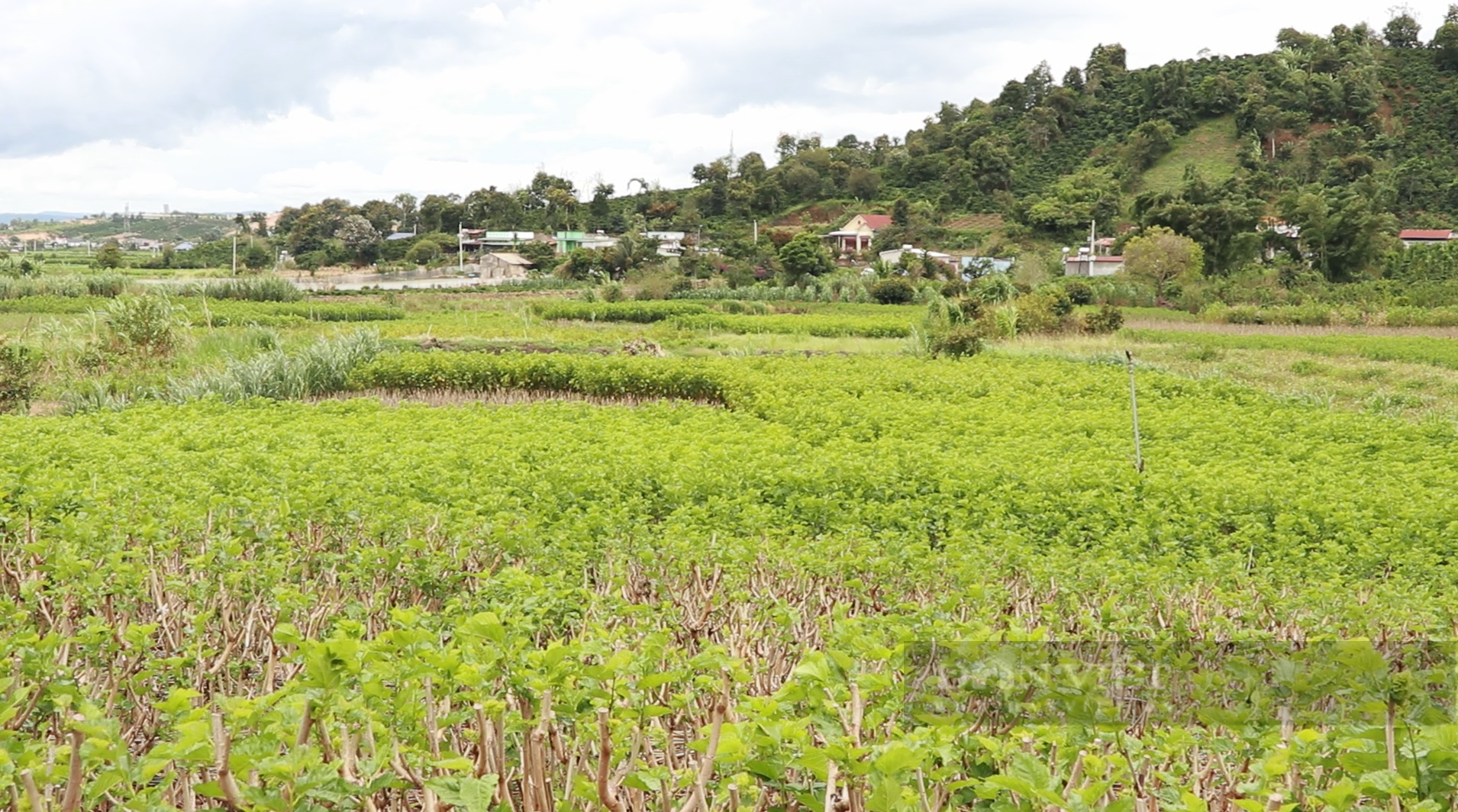
The former rice fields in Tan Thuan village have been replaced by mulberry gardens to raise silkworms.
According to the reporter, in Tan Thuan village, people used to mainly grow rice, so their income was quite low. However, recently, people have learned from each other how to grow mulberry and raise silkworms, bringing in a stable income of 10-20 million VND per month. In Tan Thuan village, up to 80% of people work in growing mulberry and raising silkworms.
Talking to reporters, Mr. Quang Thanh Truong (Thai ethnic group, 37 years old, Tan Thuan village, Tan Van commune) said: Previously, with 6,000m2 of land, his family could only grow one rice crop per year due to lack of irrigation water, so it was only enough to eat, no surplus. However, for about 10 years now, he has converted the above area to growing mulberry and raising silkworms to develop the economy.
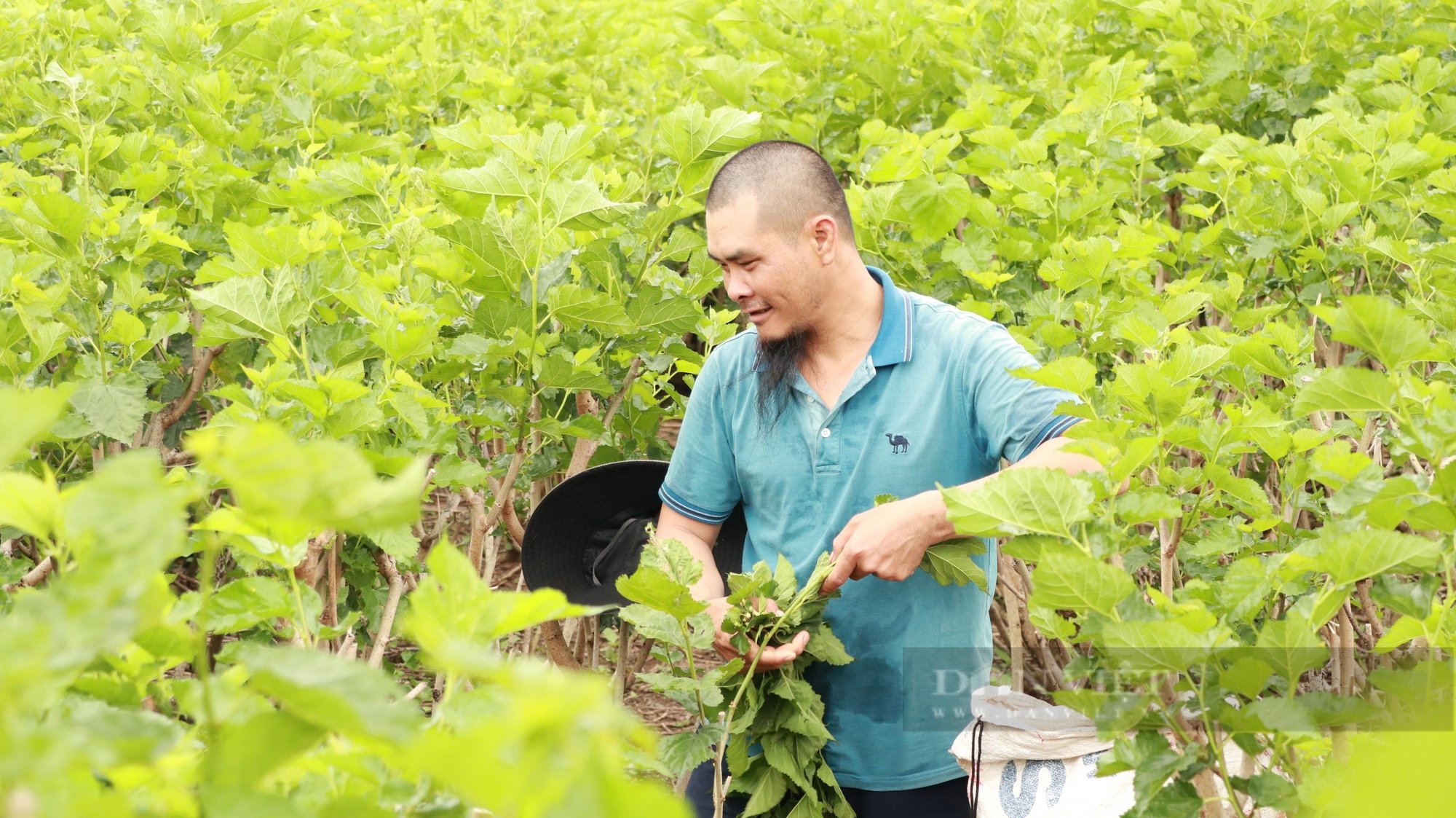
Mr. Quang Thanh Truong picks mulberries to raise silkworms in his garden.
"With 6,000 square meters of mulberry land, I can raise 2 boxes of silkworms each month. Each batch of silkworms will be harvested after 15-17 days of raising. Each month I can collect 100kg of silkworms, the price of silkworms is about 200,000 VND/kg. After deducting expenses, I have an income of about 15 million VND, many times higher than growing rice before.
Silkworm farming is quite easy, only focusing on about 1 week of silkworm feeding, if it rains it is a bit hard. But thanks to growing mulberry and raising silkworms, I have the conditions to raise two children to have a stable education," Mr. Truong shared.
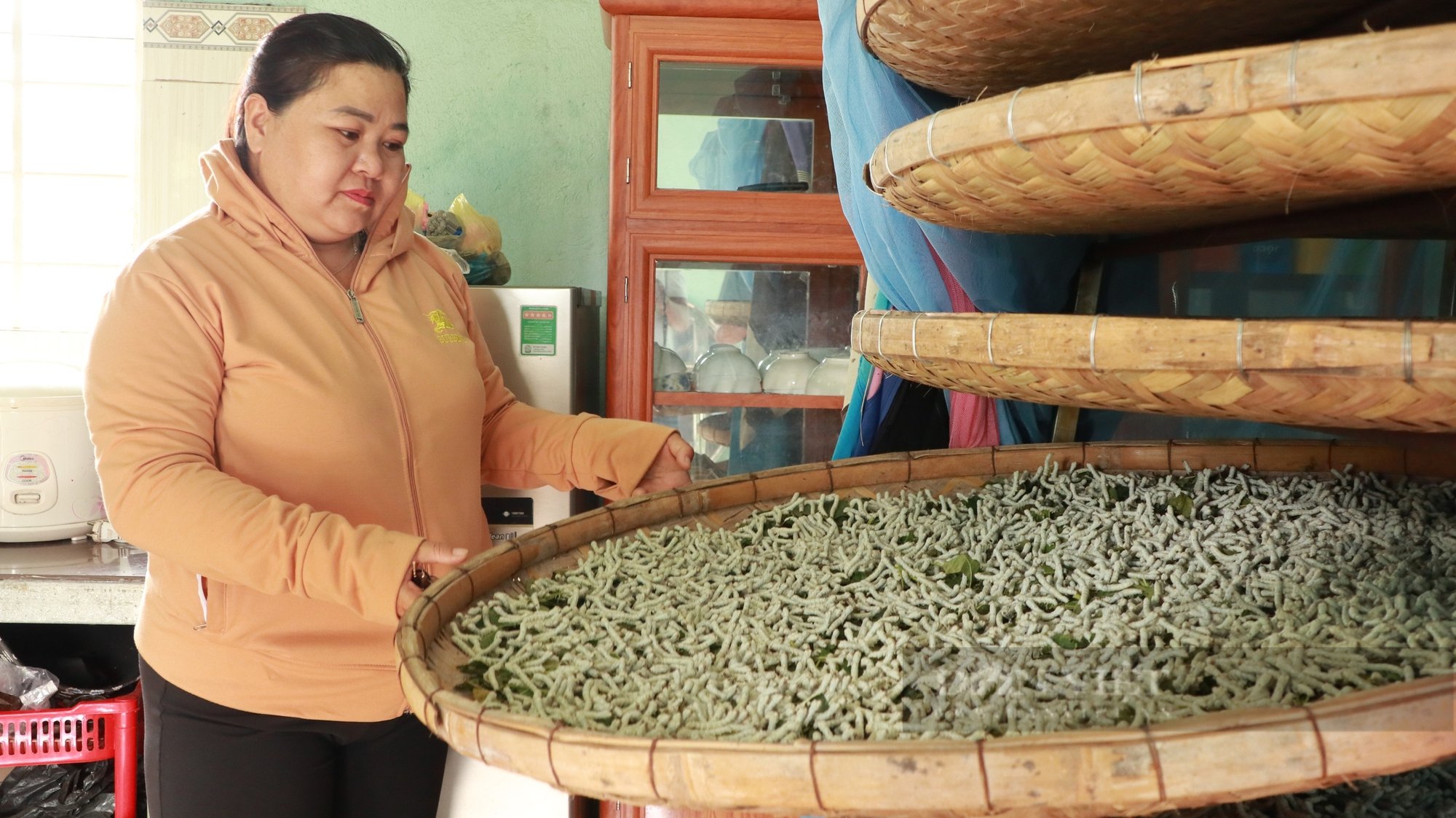
Ms. La Hoang Quyen said that growing mulberry and raising silkworms has changed the lives of many households in the village.
Meanwhile, Ms. Voong Thanh Lan (59 years old, Chinese ethnic group, Tan Thuan village, Tan Van commune) said that her family has been raising silkworms for nearly 20 years. Each month, her family raises 4 boxes of silkworms, harvesting about 200kg of cocoons. With the current price of 200,000 VND/kg of cocoons, Ms. Lan's family earns 20-30 million VND per month after deducting expenses. Thanks to growing mulberry and raising silkworms, Ms. Lan's family has been able to buy an additional 2,000, 3,000, and then up to 1 hectare of land as it is now.
Ms. Luong Nu Hoai Thanh - President of Tan Van Commune Farmers' Association said that Tan Thuan village used to mainly grow rice once a year and some coffee. In recent years, the conversion of rice growing areas to mulberry and silkworm farming has helped local people have high income, stabilize their lives and develop the economy.
Concerns about silkworm disease
Although in recent years, people in Tan Thuan village have had a stable income thanks to growing mulberry and raising silkworms. However, in the past year, diarrhea has appeared more frequently during free days, causing silkworm farmers to lose revenue.
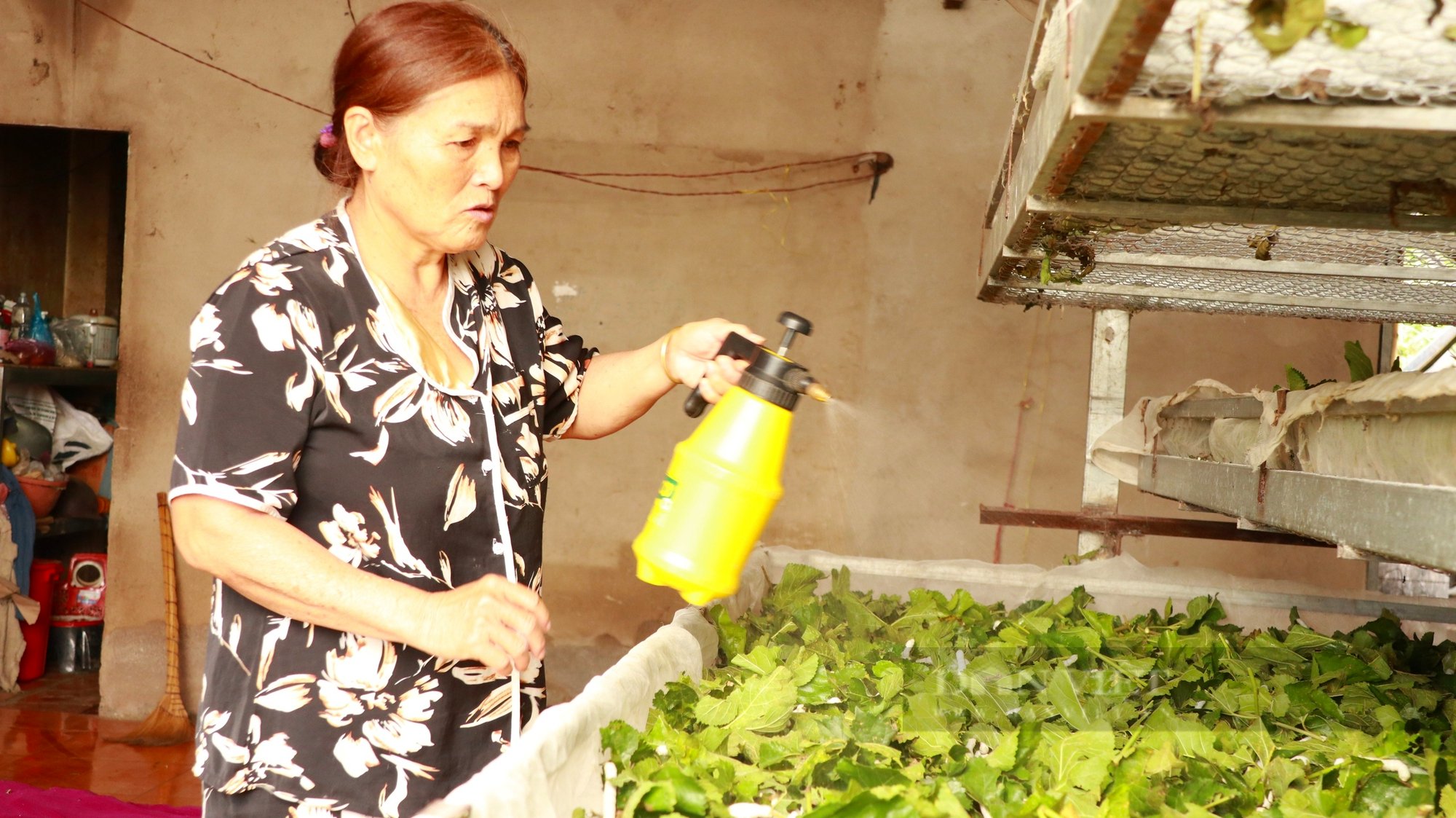
Ms. Voong Thanh Lan sprays medicine to treat diarrhea in her silkworms.
Mr. Chu A Hai (50 years old, Chinese) said that in the past year, many people in Tan Thuan village had to throw away silkworms when the cocooning day was near because the silkworms had diarrhea. Although people went to stores specializing in selling medicine to treat silkworms, they could not cure the disease.
"The days when the silkworms eat four times are very beautiful, but when the silkworms are done eating, and there is only about a week left before harvest, they get diarrhea. I asked the silkworm breeders about how to treat silkworms with such symptoms, they gave me all kinds of medicine but it didn't work.
We even changed different silkworm shops to see if the situation improved, but the silkworms still did not recover. Therefore, we think it must be due to the silkworm breed. We hope the government will consider providing standard silkworm breeds to help people raise silkworms productively without suffering losses," said Mr. Chu A Hai.
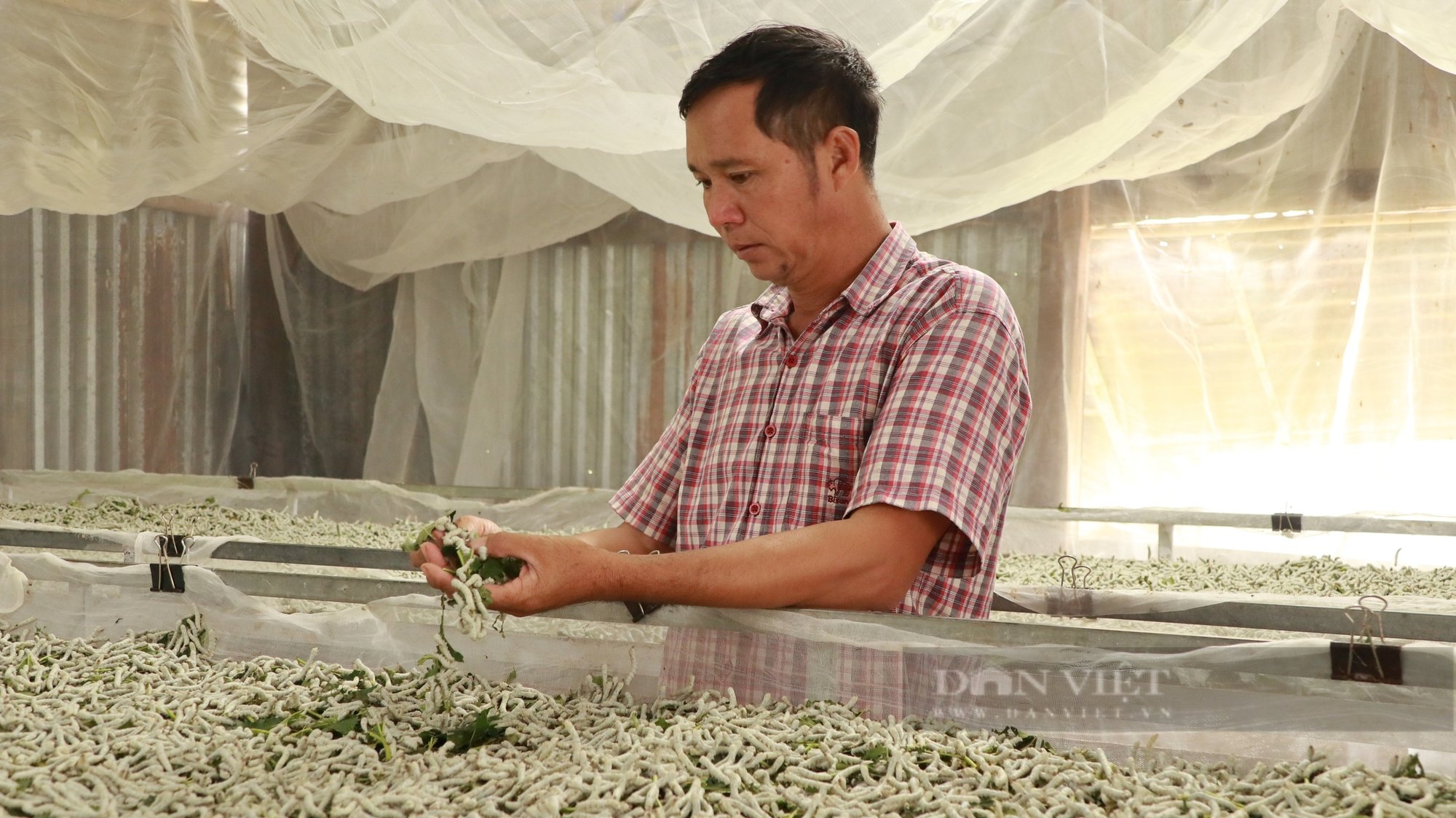
Mr. Hai said that there was a batch of silkworms that had to be 100% discarded because the silkworms had diarrhea.
According to Tan Thuan villagers, silkworms with diarrhea have symptoms of stringy, watery, and yellow slimy feces. In addition, when farmers put mulberry leaves to feed silkworms, the silkworms will crawl on the leaves and refuse to eat. Silkworms with this condition will gradually become stunted, unable to grow, and unable to spin cocoons. Silkworm farmers also said that the rate of diseased silkworms is not fixed, but almost every farming batch has it, from 20-50%, sometimes up to 100%.
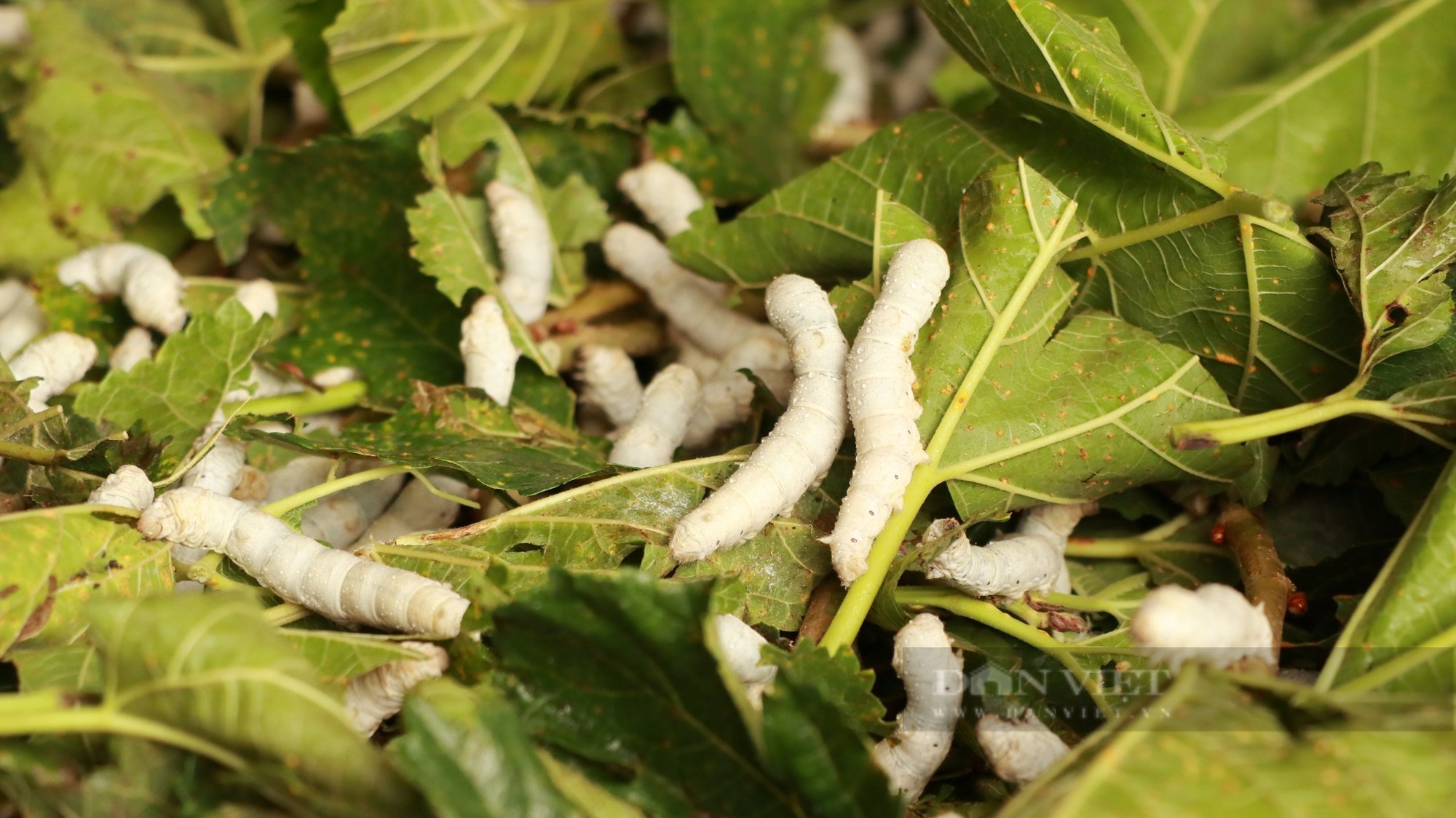
Sick silkworms often have symptoms of excreting stringy, watery, yellow slimy feces.
Meanwhile, Mr. Sy Ly Sau (54 years old, Chinese ethnic group in Tan Thuan village) said that in the past, the silkworm disease only appeared once in a while. However, in the past year, the number of silkworm diseases has increased. Although people have used all kinds of medicine, they still cannot cure it.
While feeding the young silkworms, Mr. Sy Ly Sau said: "Many families throw away sick silkworms, but my family still tries to raise them to get as many cocoons as possible. If we raise a box of cocoons well, we will get about 50-60kg of cocoons, but if we raise them sickly, we will be able to salvage about 20-30kg of cocoons, reducing the yield by 50%."
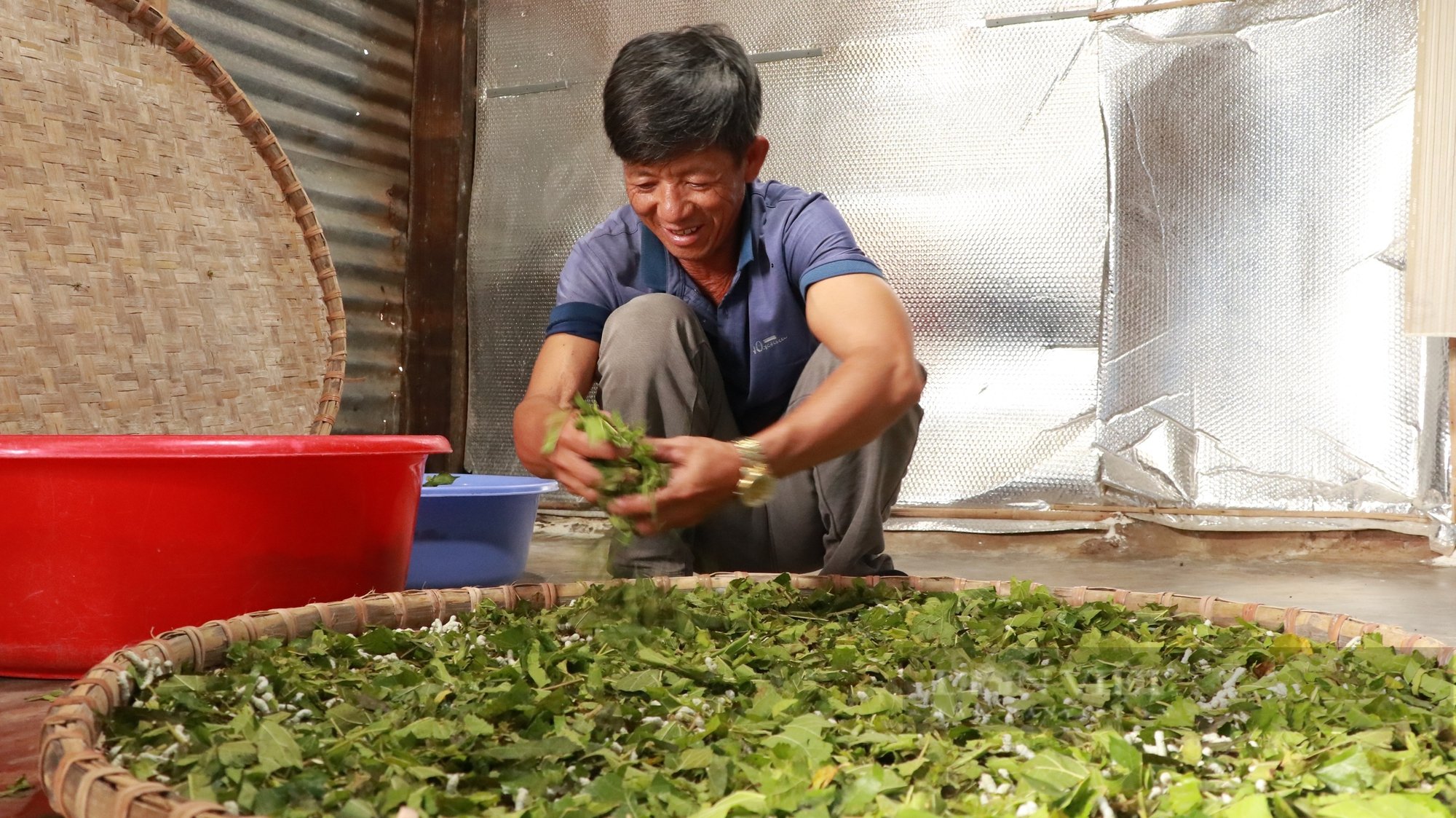
Mr. Sy Ly Sau feeds silkworms. He has been doing this job for decades.
According to statistics from the Department of Agriculture and Rural Development of Lam Dong province, the whole province currently has about 10,000 hectares of mulberry for silkworm farming. Each year, the locality needs 350,000-400,000 boxes of silkworm seeds for production. Most of the silkworm seeds are imported from China. Of which, the silkworm cocoon output reaches 15,000 tons, accounting for 80% of the country's cocoons.
Source: https://danviet.vn/nhan-luong-tot-chuc-trieu-moi-thang-nhung-nguoi-dan-nuoi-tam-mot-xa-o-lam-dong-so-loai-benh-nay-20240924204534738.htm




![[Photo] Prime Minister Pham Minh Chinh chairs conference on anti-smuggling, trade fraud, and counterfeit goods](https://vphoto.vietnam.vn/thumb/1200x675/vietnam/resource/IMAGE/2025/5/14/6cd67667e99e4248b7d4f587fd21e37c)



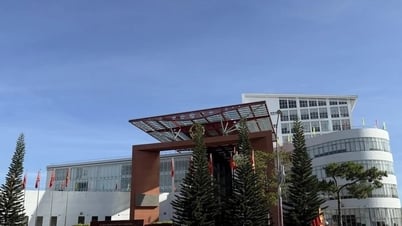

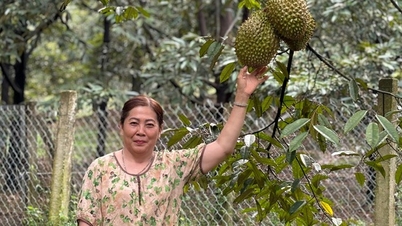



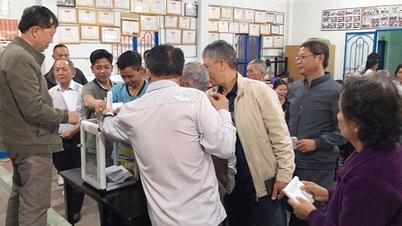




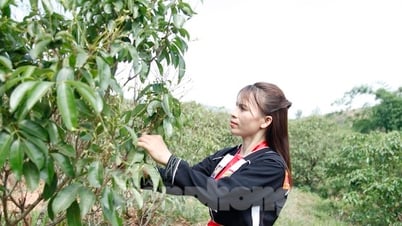

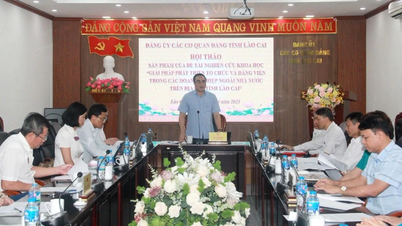


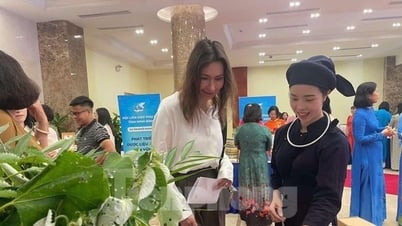
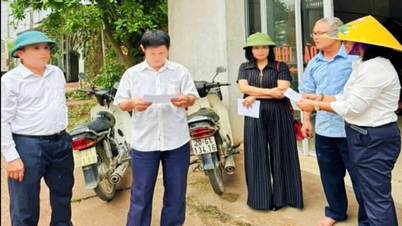














































































Comment (0)